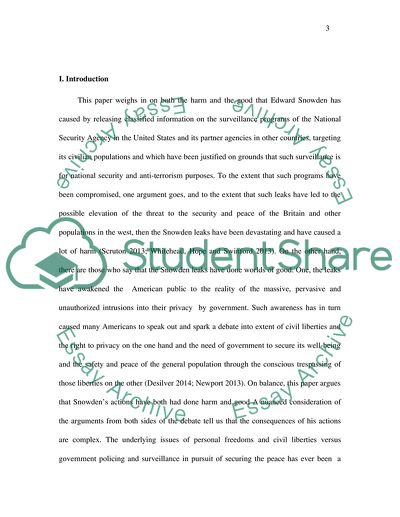Cite this document
(“Did Edward Snowden do more good or harm Essay Example | Topics and Well Written Essays - 2250 words”, n.d.)
Retrieved from https://studentshare.org/social-science/1685561-did-edward-snowden-do-more-good-or-harm
Retrieved from https://studentshare.org/social-science/1685561-did-edward-snowden-do-more-good-or-harm
(Did Edward Snowden Do More Good or Harm Essay Example | Topics and Well Written Essays - 2250 Words)
https://studentshare.org/social-science/1685561-did-edward-snowden-do-more-good-or-harm.
https://studentshare.org/social-science/1685561-did-edward-snowden-do-more-good-or-harm.
“Did Edward Snowden Do More Good or Harm Essay Example | Topics and Well Written Essays - 2250 Words”, n.d. https://studentshare.org/social-science/1685561-did-edward-snowden-do-more-good-or-harm.


